Top presidential aide calls to end US interference on Iran's foreign policy
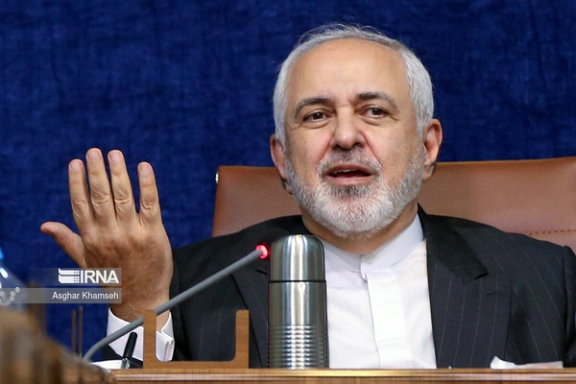
Iran's Vice-President for Strategic Affairs Javad Zarif criticized US influence on the country's foreign policy, calling it an obstacle that must be removed.

Iran's Vice-President for Strategic Affairs Javad Zarif criticized US influence on the country's foreign policy, calling it an obstacle that must be removed.
Speaking at a conference titled Prospects of Regional and Global Developments in the Trump Era in Tehran, Zarif said, "I do not view the United States as an opportunity for Iran's foreign policy; I see it as an obstacle."
The event, hosted by the Institute for Iran-Eurasia Studies (IRAS), brought together diplomats and analysts to examine the challenges posed by Trump-era policies.
Zarif argued that US President Donald Trump's focus on reviving hard power through economic pressure—such as tariffs and visa restrictions—was emblematic of his administration's approach to global dominance.
He added that Trump divided countries into "smaller nations that must show loyalty and peer nations that do not." This dynamic, he suggested, “weakened the notion of stable alliances, replacing them with temporary, issue-based coalitions."
For decades, Iran has labeled the US its enemy, citing a history of sanctions, intervention, and regime-change attempts. The two nations broke diplomatic ties in 1980.
Trump’s maximum pressure campaign marked a peak in hostility, with severe sanctions targeting Iran's economy. Yet Tehran claims to have withstood these efforts, portraying its survival as a defeat of Washington's regional ambitions.
Zarif also addressed perceptions of Iran’s weakened state, refuting that it posed a greater nuclear threat. "They argue that military action is the only way to stop Iran," he said, but added that Trump’s flexibility might leave room for negotiations.
He said that based on Trump's recent statements, the new US president's mind is subject to change.
"Trump does not have a solidified perspective in this area, and depending on the circumstances he finds himself in at any given moment, he is willing to adjust some of his paradigms," he added.
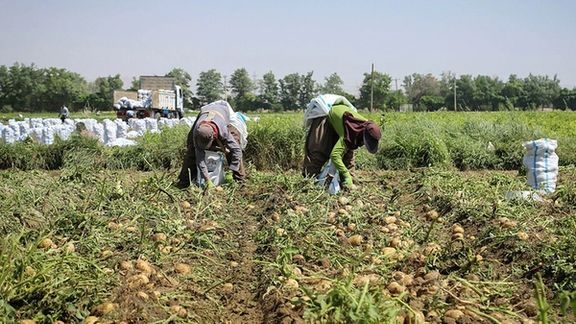
To stabilize soaring potato prices, Iran is importing 50,000 tons of the staple vegetable, according to Iran’s deputy agricultural minister.
The imported potatoes will be sold at a target price of about 30 US cents per kilogram, less than half of the current market prices, Akbar Fat’hi said on Wednesday.
The average income of an Iranian wage earner is about $150.
He anticipates the influx of imported and domestically stored potatoes will lead to price reductions in the coming days.
Fathi attributed the current high prices to increased exports and the off-season for domestic potato production. He also noted that further potato imports may be necessary if the market does not stabilize as expected.
The move follows recent reports of significant price increases on essential food items, with some activists saying the real inflation rate for basic necessities is far higher than official figures suggest.
Labor activist Faramarz Tofighi, speaking to ILNA, highlighted the rising cost of vegetables, including potatoes, making it difficult for workers to afford basic necessities.
He argued that the real inflation rate for essential goods is likely above 50-60%, significantly higher than official figures announced to be about 40%.
He added that many families will soon be unable to afford even red meat monthly. He also cited rising prices for bread, meat, dairy, and an 80% increase in egg prices over the past two months.
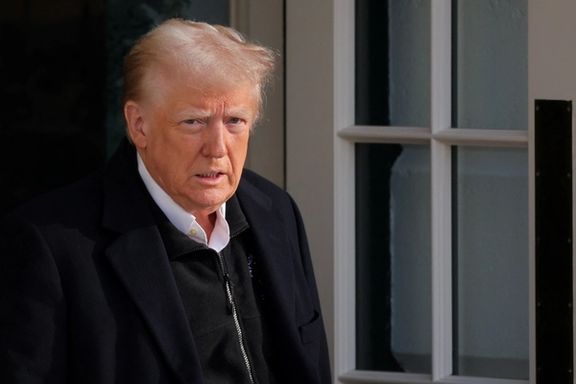
US President Donald Trump's latest remarks on Iran, which downplayed the likelihood of military conflict and suggested possible dialogue, have prompted some Tehran insiders to favor direct talks and a potential agreement with his administration.
“This time Trump is completely different from before. There were [people like] John Bolton and [Mike] Pompeo before and he had radicals [around him],” Ahmad Bakhshayesh-Ardestani, a member of the Parliament’s National Security and Foreign Policy Committee told the Iranian Labour News Agency (ILNA) Tuesday.
Last week, President Trump expressed hope that a deal on Iran's nuclear program would eliminate the need for the US to support an Israeli attack on Iran.
"It would really be nice if that could be worked out without having to go that further step ... Iran hopefully will make a deal, and if they don't make a deal, I guess that's okay too," Trump said.
Last week, Trump terminated Secret Service protection for former national security advisor John Bolton, former secretary of state Mike Pompeo, and former special envoy for Iran Brian Hook, despite alleged threats from Iran against their lives. This decision has drawn criticism from some Republicans.
Bakhshayesh-Ardestani also argued that Trump’s approach and way of thinking about conflicts in the world have changed because he wants to tell the world that he has the power to go to war but wants to solve the problems without resorting to force.
He also argued that Trump has adopted a new approach to the Islamic Republic because he has realized that Iran does not seek a nuclear bomb. “Trump’s focus is on Iran for not having nuclear weapons. Iran considers nuclear weapons to be religiously forbidden,” he said, adding that this means an agreement between the two sides is possible.
He was apparently referring to an alleged fatwa by Supreme Leader Ali kHamenei many years ago. However, analysts argue that the so-called fatwa is merely an advisory opinion rather than a binding legal decree. They argue it was intended to mislead the international community about the true intentions of a nuclear program that Tehran insists is peaceful.
In late December, Bakhshayesh-Ardestani had said that an Israeli strike against Iran's nuclear facilities would effectively allow the Islamic Republic to move toward developing nuclear weapons.
Speaking to the moderate conservative Entekhab news website in Tehran on Monday, a former Iranian diplomat at the UN, Kourosh Ahmadi, described “the tone and content of the words that Trump has spoken about Iran after taking office” as “more diplomatic than hostile.”
“Firstly, he has only talked about negotiation and agreement [with Iran], and secondly, his tone is mostly calm and there is no threatening rhetoric,” he said.
Ahmadi suggested that Trump's stance has increased the likelihood that he plans to "officially propose negotiations as the first step in relations with Iran, rather than focusing on threats or pressure."
The former diplomat also advised Iranian authorities to view Trump’s statements as an indication of his openness to negotiating with Tehran before exploring other options.
President Masoud Pezeshkian and officials of his administration including Foreign Minister Abbas Araghchi say Tehran is open to and prepared for talks with the Trump administration, but it is unclear to what extent they are willing to be flexible. Trump also has not officially reveal his next steps toward Tehran.
Other Iranian officials, including Pezeshkian’s Special Envoy in Maritime Economy, Ali Abdolalizadeh, have in recent weeks indicated that the “governance” has concluded that there must be direct talks between the US and Iran.
In the parlance of the Islamic Republic, terms like "governance" or "system" are frequently used to refer to Supreme Leader Ali Khamenei. In 2018, Khamenei stated that the Islamic Republic would never engage in negotiations with the US, specifically not with the Trump administration.
In mid-January, a senior figure in Khamenei’s office claimed that the Supreme Leader’s anti-American remarks in a speech were not meant to rule out negotiations if the positions of the two sides of a dispute align.
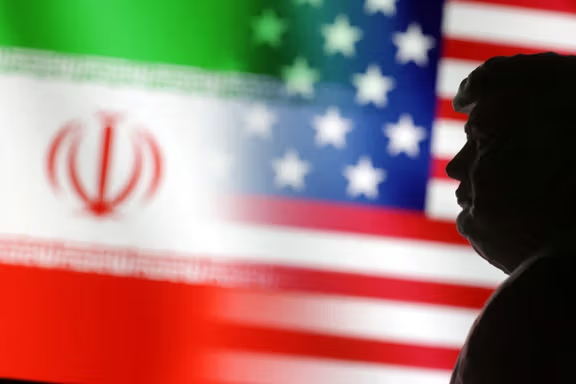
Iran's political establishment continues to send mixed signals on its openness to talks with Washington, as the deputy speaker of parliament said Wednesday that Tehran supports negotiations, while a leading hardline newspaper doubled-down on its opposition.
Hamidreza Hajibabaei, the senior lawmaker and former minister in Mahmoud Ahmadinejad’s administration, told the media that Tehran has no “enmity or war with America.”
“We are open to negotiations, but they must be fair,” he added.
Iranian officials repeatedly stress the need for fair negotiations, indicating that any demands must fall within the scope of what they are willing to accept.
During talks between the two sides a decade ago, Tehran strongly rejected the inclusion of non-nuclear issues, including its ballistic missile program and regional activities.
Prior to Hajibabaei's remarks, Supreme Leader Ali Khamenei, who holds the highest authority in the Islamic Republic, cautioned top government officials to remain vigilant during any negotiations.
Several state-controlled media outlets and commentators interpreted this as a subtle signal of Khamenei’s approval for talks with the Trump administration.
In contrast, the ultra-hardliner Kayhan newspaper, with close ties to Khamenei’s office, sharply criticized the US for pressing maximalist demands on the Islamic Republic. According to Kayhan, these demands included imposing limits on its missile program, reducing its nuclear activities to what it described as a symbolic level, and prohibiting its interventions in the region.
Despite a rising number of Iranian officials and commentators, who are permitted to speak to the media, advocating for negotiations, Kayhan maintained that Tehran does not see an urgent need to negotiate the lifting of sanctions.
The country’s economic crisis, which has been ongoing for some time, has deepened in recent months, with the national currency losing more than half of its value and Iran facing severe shortages.
"The discussion of negotiations with the US, which will certainly lead nowhere, causes powerful governments that have formed the opposing front against the US to doubt Iran's seriousness in economic and multilateral cooperation," Kayhan's analysis concluded, potentially hinting at a partnership deal Tehran recently formalized with Moscow. "As a result, they may refrain from entering major partnerships with the Islamic Republic. Therefore, negotiating with the US is a lose-lose game for us and a win-win for the US."
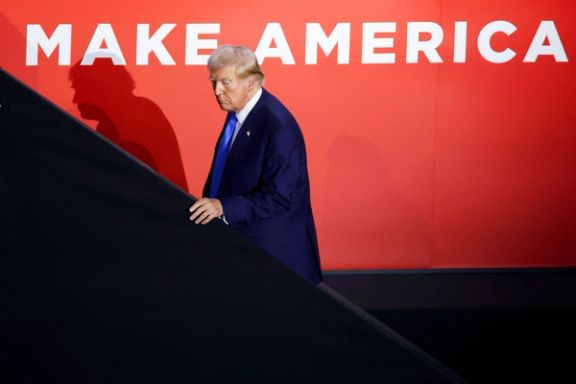
Iran's president says the Islamic Republic has not received any messages from US President Donald Trump yet.
Asked by reporters about receiving a message from Trump, President Masoud Pezeshkian said, "No, we have not received any messages yet."
Foreign Minister Abbas Araghchi also told reporters that there has been no communication with Trump. "No specific message has been sent or received."
Speaking after a cabinet meeting in Tehran, he talked of the erosion of trust after past agreements were broken.
"We had previously reached an agreement, but they broke the agreement, and now the basis is distrust," he said.
Iran engaged in 18 months of indirect negotiations with the Biden administration between 2021 and 2022 to restore the United States’ participation in the JCPOA after Trump unilaterally exited the agreement in 2018, imposing harsh sanctions on Iran. However, the Vienna talks ended without a deal, particularly after Russia’s 2022 invasion of Ukraine. The conflict raised questions about whether Tehran genuinely sought an agreement or aimed to ease sanctions.
Deputy Foreign Minister for Political Affairs, Majid Takht-Ravanchi, said on Monday that Tehran is consulting on President Donald Trump's policies toward Iran and has developed strategies and plans to address them.
Takht-Ravanchi said that Iran will not engage in negotiations on issues beyond its nuclear program, potentially referencing US demands for Tehran to end its involvement in regional affairs.
Domestically, parliamentary committee member Fada-Hossein Maleki said that Iran is not authorized to engage directly with the US, maintaining only mediated channels.
Iran's Supreme Leader, Ali Khamenei, on Tuesday called on Iranian officials to remain vigilant about their adversaries when engaging in negotiations and to approach agreements with caution. His cryptic remarks have been interpreted by some as a subtle endorsement of talks with the United States.
"Behind the smiles of diplomacy, there are always hidden and malicious enmities and resentments. We must open our eyes and be careful with whom we are dealing, trading, and talking," Khamenei said at a gathering of top military and political figures.
Ali Khamenei has served as the supreme authority of the Islamic Republic for the majority of its nearly 46-year history, wielding ultimate decision-making power.
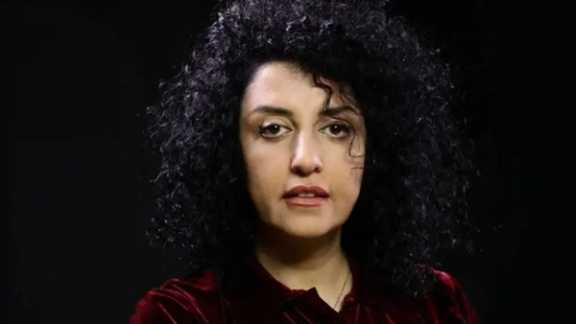
Narges Mohammadi, the Nobel Peace Prize laureate and prominent human rights activist, has described the No to Execution Tuesdays campaign by female prisoners as a "civil movement capable of expanding across Iran".
Speaking during a virtual event on Clubhouse to mark the campaign's first anniversary, Mohammadi highlighted its significance in opposing the widespread use of executions in Iran.
"The Islamic Republic seeks to assert its hollow authority by creating fear through mass executions," said Mohammadi, one of the most outspoken activists inside Iran.
"This campaign is not just a protest but a deeply human rights-driven effort that holds the potential to unite and mobilize people against the death penalty."
The campaign began on January 30, 2024, when political prisoners in the women’s ward of Tehran’s Evin Prison launched hunger strikes every Tuesday to protest increasing executions and show solidarity with inmates at Ghezel Hesar Prison in Karaj who had done the same.
Now in its 53rd week, the movement has gained momentum, drawing support from political prisoners across Iran.
Mohammadi, currently on medical leave from imprisonment, expressed her hope for an Iran free of executions.
"The gallows ropes will be torn apart by the powerful hands of each one of us," she said.
"One day, these execution chambers will serve only as a historical lesson on the consequences of tyranny, guiding humanity toward progress, freedom and equality."
The campaign’s message has reached international audiences, amplified by the participation of Iranian political prisoners from diverse backgrounds.
Mohammadi called for continued unity among democracy and human rights advocates, underscoring the campaign’s potential to foster lasting change.